
Understanding water
What essential habit should you adopt daily ?

What is fractionated hydration?
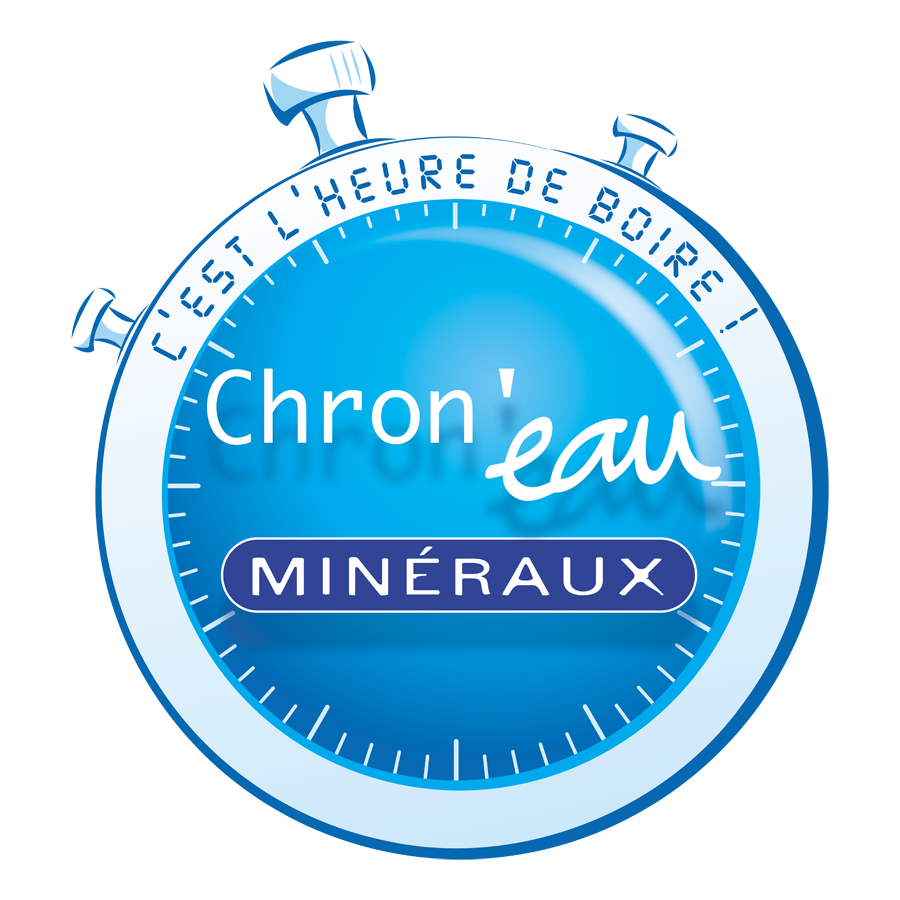
What is spring water?

What is natural mineral water? What are its benefits?
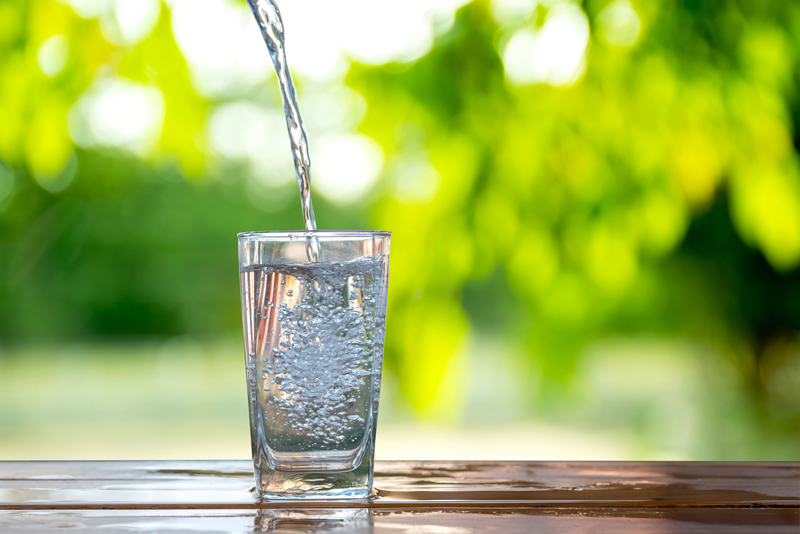
What are the benefits of mineral-rich waters?
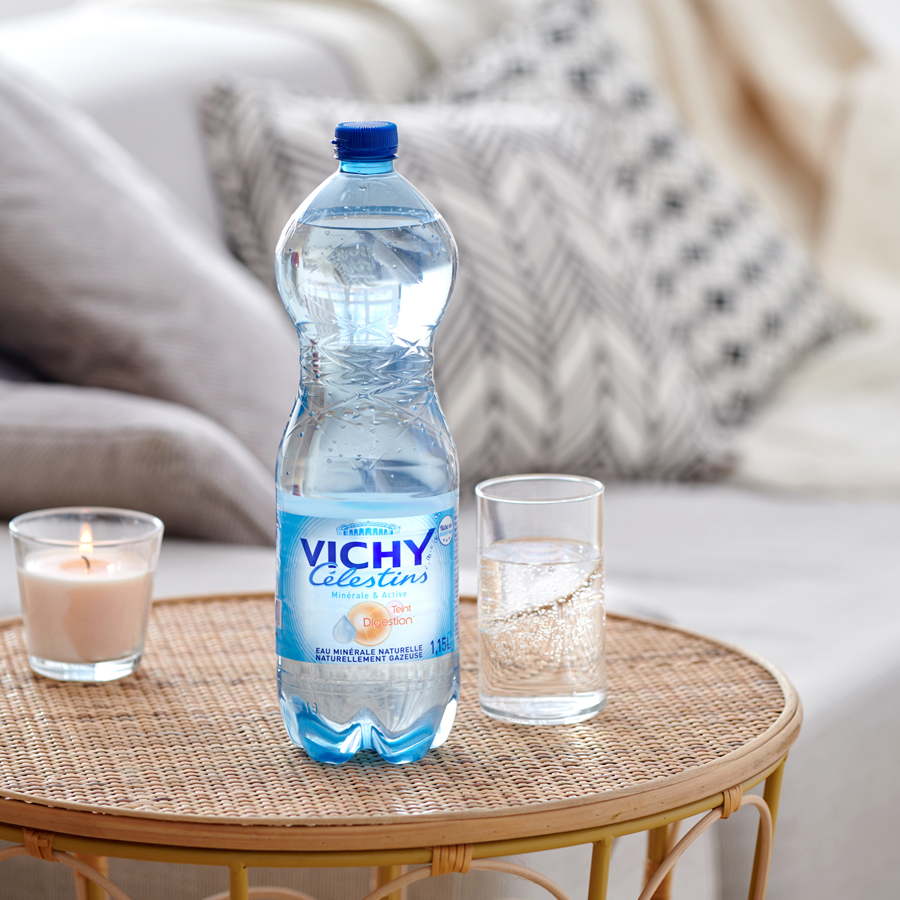
What are the benefits of magnesium ?
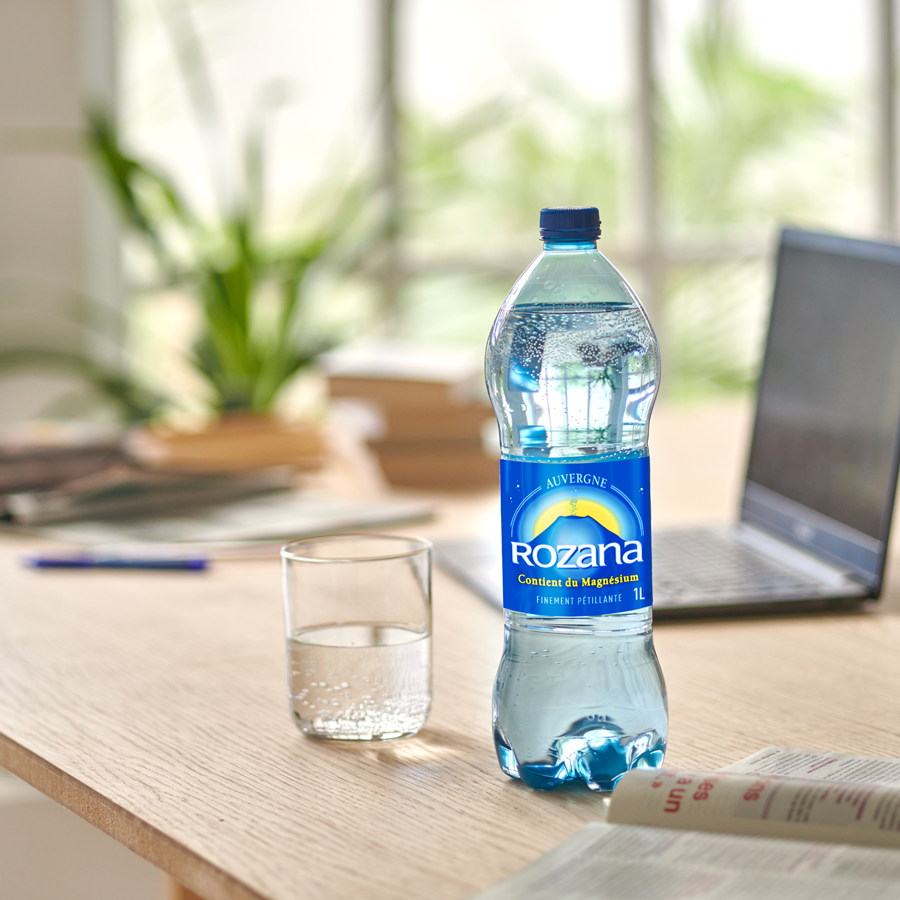
What are the benefits of calcium?

What are the benefits of bicarbonate?
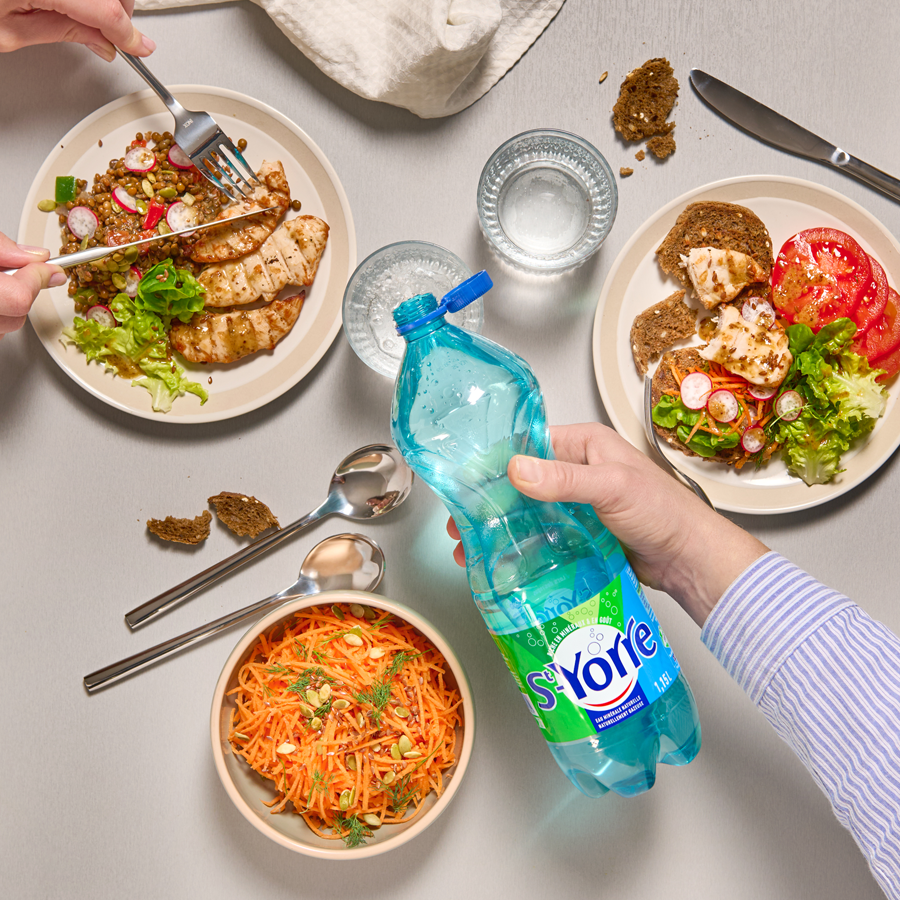
What water to choose for babies ?
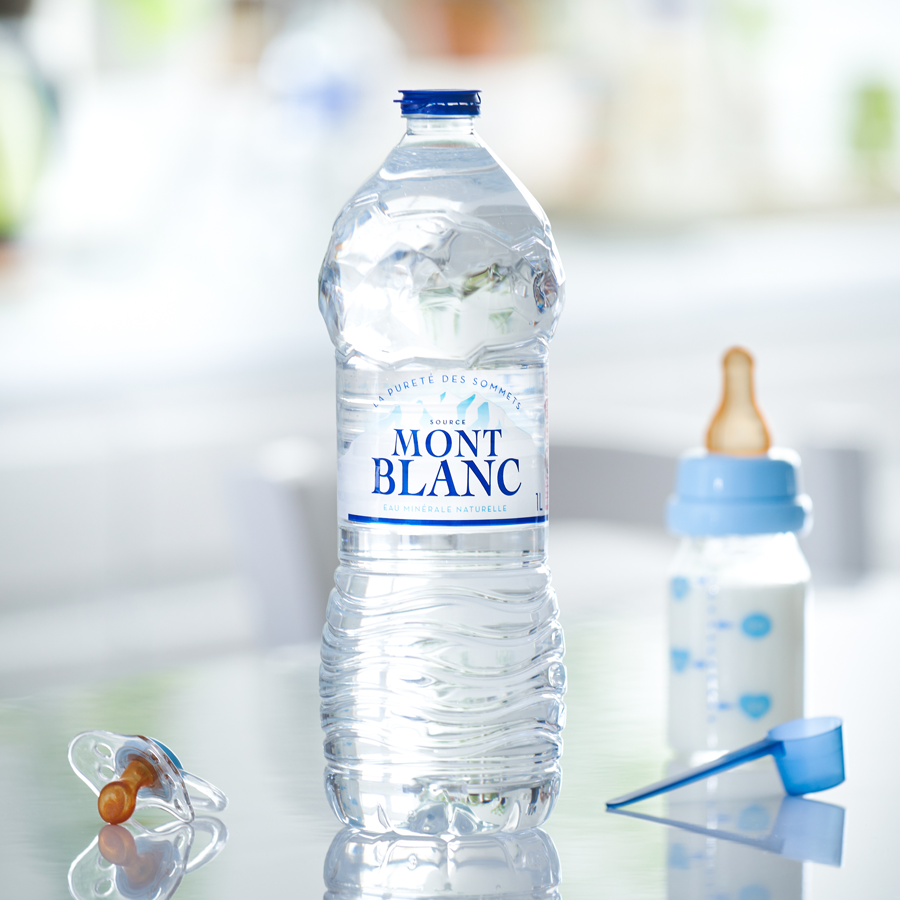
What essential habit should you adopt daily ?
Drinking water daily is essential for the proper functioning of the body. Water is the only beverage necessary for life and is indispensable for maintaining good hydration.
It is recommended to consume at least 2 liters of water each day, with 80% (approximately 1.5 liters) coming from beverages*, particularly to compensate for the losses related to sweating, urination, and even breathing.
Of course, individual needs vary depending on circumstances. Drinking water is even more crucial in cases of high heat, stress, or physical exertion.
*Source:EFSA 2011

What is fractionated hydration?
Am I well-hydrated ?
How can I be sure I’m drinking enough each day ?
Sources Alma has implemented the method of fractionated hydration based on your situation, age, or activity level. Chron’eau helps you choose the water best suited to your profile, as mineral waters have very different characteristics. Their mineral content varies, and so do their benefits.
Want to know more? Visit www.cestlheuredeboire.fr.

What is spring water?
Spring water is underground water that is microbiologically safe and protected against pollution risks. Collected in its natural state, it is guaranteed to be safe for human consumption.
Spring water with added carbon dioxide: it is made effervescent by the addition of carbon dioxide from a source other than the one it originates from.

What is natural mineral water? What are its benefits?
Our body loses water every day, but also essential minerals needed for our well-being. To compensate for these losses, there is a simple and natural solution: regularly consume mineral-rich waters. Thanks to the various mineral compositions of Sources Alma waters, you will always find the water that suits you.
Mineral water are characterized according to their mineral composition and their levels of certain minerals. Collected from deep within a protected area free from human pollution, natural mineral water is a true gift from nature. Microbiologically safe and characterized by its original purity, mineral water guarantees a unique and stable mineral composition over time. Bottled at the source, mineral water undergoes no chemical treatment or chlorine addition. As a result, it is the only type of water that can benefit from health properties recognized by the Academy of Medicine.
The classification of waters according to their mineral content:

Some low-mineral waters (mineral content less than 500 mg/L) may be recommended for newborn’s feeding. Ideal for everyone, moderately mineralized waters (between 500 mg/L and 1500 mg/L) are suitable for consumption on all occasions. Mineral-rich waters (greater than 1500 mg/L) can, in turn, supplement daily mineral intake while providing health benefits to the body.

What are the benefits of mineral-rich waters?
Few natural mineral waters are rich in minerals: with 4,774 mg of minerals per liter, St-Yorre is classified as a mineral-rich water, along with VICHY Célestins (3,325 mg/L), Rozana (3,022 mg/L), Saint Antonin (2,440 mg/L), and Courmayeur (2,146 mg/L).
Mineral-rich water not only provides hydration but also delivers a guaranteed quantity of minerals that contribute to the proper functioning of the body. The benefits of a mineral water vary based on its mineral composition. Identified according to its richness and mineral profile, each mineral water offers a unique taste and composition: calcium-rich, magnesium-rich, bicarbonate-rich, etc.

What are the benefits of magnesium ?
Magnesium is essential for the body. It plays a key role in regulating nerve impulses and muscle relaxation. It also supports healthy digestion and even contributes to energy production. Magnesium deficiencies can lead to increased anxiety, insomnia, and fatigue*.
Yet, 7 out of 10 people in France have insufficient magnesium intake**, which is why it’s important to meet our daily magnesium needs through a balanced diet.
Some foods naturally contain magnesium — the most well-known being chocolate. Magnesium-rich mineral waters*** (magnesium > 50 mg/L) can also help supplement daily intake. For example, Rozana natural mineral water provides 160 mg/L of magnesium.
* Regulation No. 432/2012 of May 16, 2012
** Source: SU.VI.MAX study
*** Decree of March 14, 2007 (Annex III)

What are the benefits of calcium?
Calcium is the most abundant mineral in our body and contributes to the formation and strength of bones and teeth. It is involved in many functions: blood coagulation, muscle contraction, nerve conduction…
If your calcium intake is insufficient, decalcification can occur, leading to an increased risk of bone fragility.
It is therefore important to ensure that our body receives regular and consistent calcium intake. In this regard, calcium-rich waters (calcium > 150 mg/L) represent a good alternative to dairy products, such as Courmayeur mineral water (557 mg/L), especially for those on a diet or intolerant to lactose.

What are the benefits of bicarbonate?
Sodium bicarbonate is alkalizing and provides an intake of sodium ions and bicarbonate. It helps regulate the acid-base balance of plasma* and contributes to combating the acidosis in our body.
It is not only naturally present in so-called bicarbonate waters (bicarbonate > 600 mg/L) such as St-Yorre (4,368 mg/L) or VICHY Célestins (2,989 mg/L). These waters are recommended after a good meal or during physical activity.
*source VIDAL.fr

What water to choose for babies ?
During the first months of life, a baby’s diet consists exclusively of milk to meet their energy and mineral needs. The best choice, after breast milk, for hydration and formula preparation is low-mineral water. Indeed, after birth, the immune system of babies and some of their organs, particularly the kidneys, are still immature.
This is why infants need water low in nitrates (< 10 mg/L) and with low mineral content (residue at 180°C < 500 mg/L), as the minerals found in breast milk and formula are sufficient to meet their needs.

